Flaxseed for dogs is a real trend in dog food. Learn here why flaxseed and dogs go well together, why they're such a valuable ingredient in dog food, and what the potential disadvantages of flaxseed are.
|
What are flax seeds
Flaxseeds are the seeds of the flax plant , also known as linseed or flax. They are rich in fiber, protein, fatty acids, and minerals and are often considered a health-promoting food or "superfood." Flaxseeds are also used to produce linseed oil, which is also used as a dietary supplement . They contain a high proportion of mucilage, which swells in water and coats the flaxseeds with a slimy substance.
Flaxseed and dogs – can dogs eat flaxseed?
Flaxseed for dogs can be a good addition to a dog's diet . It is rich in omega-3 fatty acids, fiber, and vitamins, and has a high protein content of approximately 20%.
Effects of flaxseed on dogs
Due to their high mucilage content, flaxseeds can bind a large amount of water in the intestines and form a protective mucous layer on the stomach lining. This nourishes the stomach lining, can reduce inflammation, and the fiber content supports digestion. They can also help lower cholesterol levels. Thus, flaxseeds can have a significantly positive effect on health .
However, it is important to limit the amount of flaxseed given to a dog. Too much flaxseed can lead to digestive problems and also impair nutrient absorption. As a guideline, science recommends a maximum of approximately 4% flaxseed in the food recipe. Up to 4% flaxseed has no adverse effects on digestibility, while larger amounts can cause digestive upset.
Benefits of flaxseed in dog food

- Flaxseeds contain many healthy omega-3 fatty acids, which can contribute to dogs' health. Omega-3 fatty acids are important for the cardiovascular system, can reduce inflammation, and strengthen the immune system.
Flaxseeds are an excellent source of fiber , which can contribute to digestion and blood sugar regulation. Fiber can also help control weight and reduce the risk of obesity and diabetes in dogs.
Flaxseed can also help support skin and coat health. The omega-3 fatty acids it contains can help reduce skin irritation, keep the coat shiny and healthy, and relieve itching.
Flaxseeds can help support bone health because they are a good source of calcium, magnesium, and phosphorus.
-
Flaxseeds may reduce the risk of cancer in dogs because they contain phytoestrogens, which have antioxidant properties and can help protect cells from free radical damage.
Flaxseeds may also help improve brain function and reduce the risk of age-related neurological diseases because they contain alpha-linolenic acid (ALA), which is converted in the liver into docosahexaenoic acid (DHA) and eicosapentaenoic acid (EPA).
However, it's important to note that the benefits of flaxseed in dog food depend on many factors, including the amount added to the food, the overall quality of the food, and the individual needs of the dog. For a high-quality food with an appropriate amount of flaxseed, check out our cold-pressed dog food .
Disadvantages of flaxseed in dog food
Oil content : Flaxseeds are rich in oils and can therefore quickly become rancid if not stored properly. Rancid oil can impair the nutritional quality of the food and make your dog ill.
Phytic acid: Flaxseeds contain phytic acid , which can inhibit the absorption of minerals in the dog's body.
Digestive problems : Some dogs may have difficulty digesting flaxseed, which can lead to gastrointestinal problems such as diarrhea or constipation.
-
Allergic reactions: Flaxseed is also a common source of allergy in dogs, so dogs with sensitive gastrointestinal tracts or known allergies to flaxseed should be avoided.
Drug Interactions : Flaxseed may interfere with the effectiveness of certain medications. It is therefore important to consult a veterinarian before adding flaxseed to your dog's diet.
To avoid these disadvantages, it is important to carefully control and monitor the amount of flaxseed added and potential reactions.
Should I buy dog food with flaxseed?
This depends entirely on your dog's health and nutritional needs.
Basically, flaxseeds are a nutritious ingredient in dog food because they are a good source of omega-3 fatty acids, fiber and vitamins.
However, it is important that you only give your dog flaxseed in small amounts (up to 4% of the food recipe), as it is very high in fiber and a large portion can lead to problems with the digestive system.

"Food without compromise" - We want more dogs to be fed healthy food!

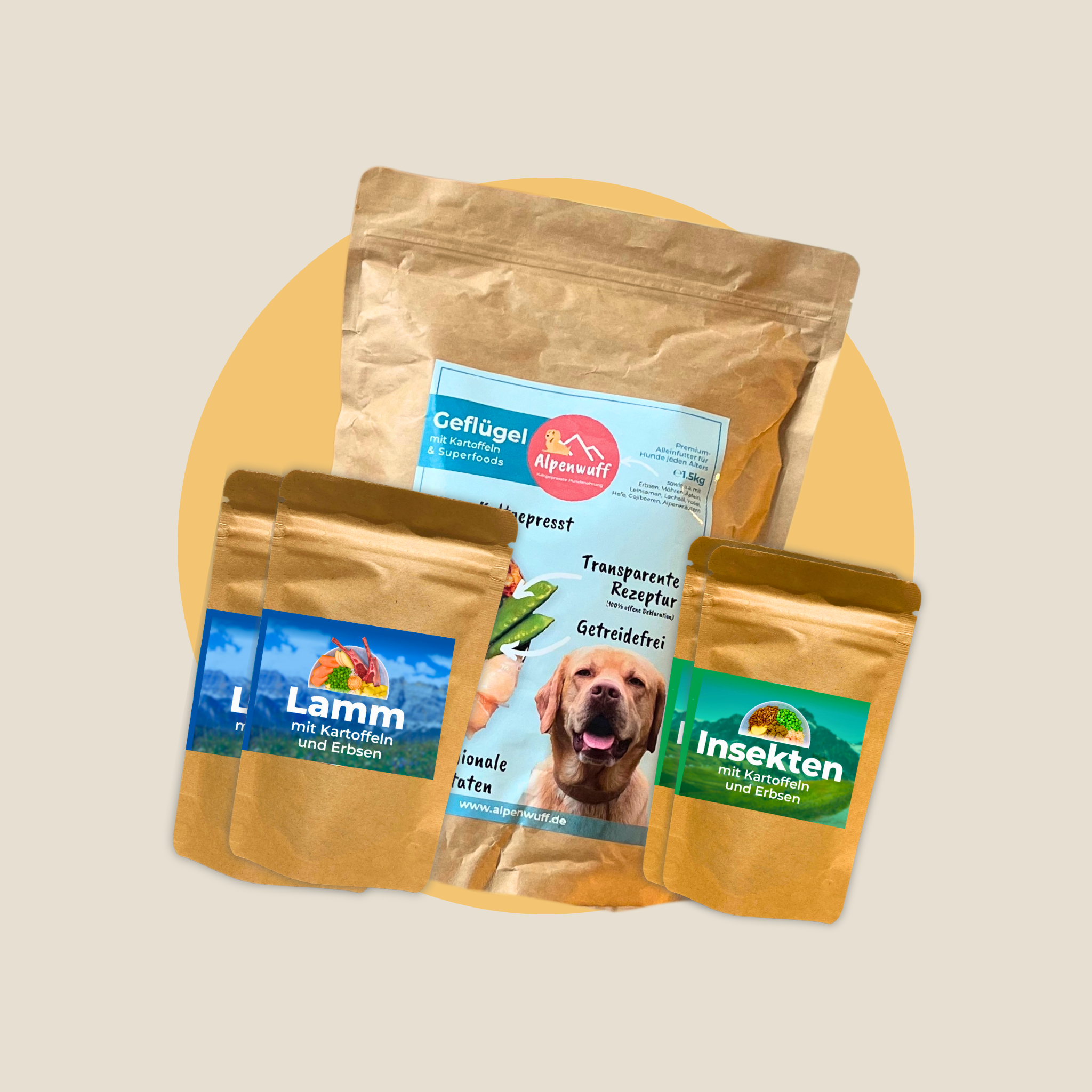
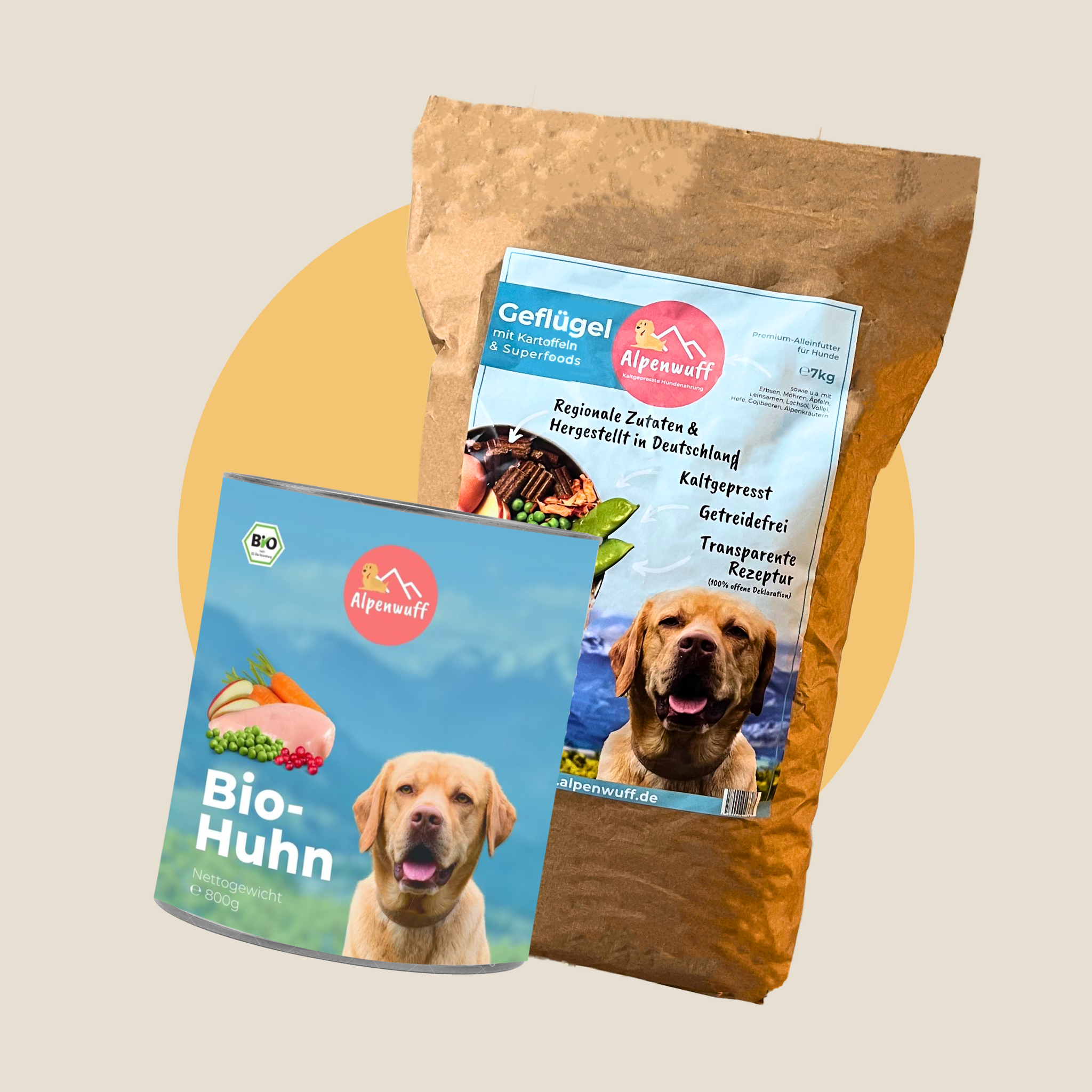
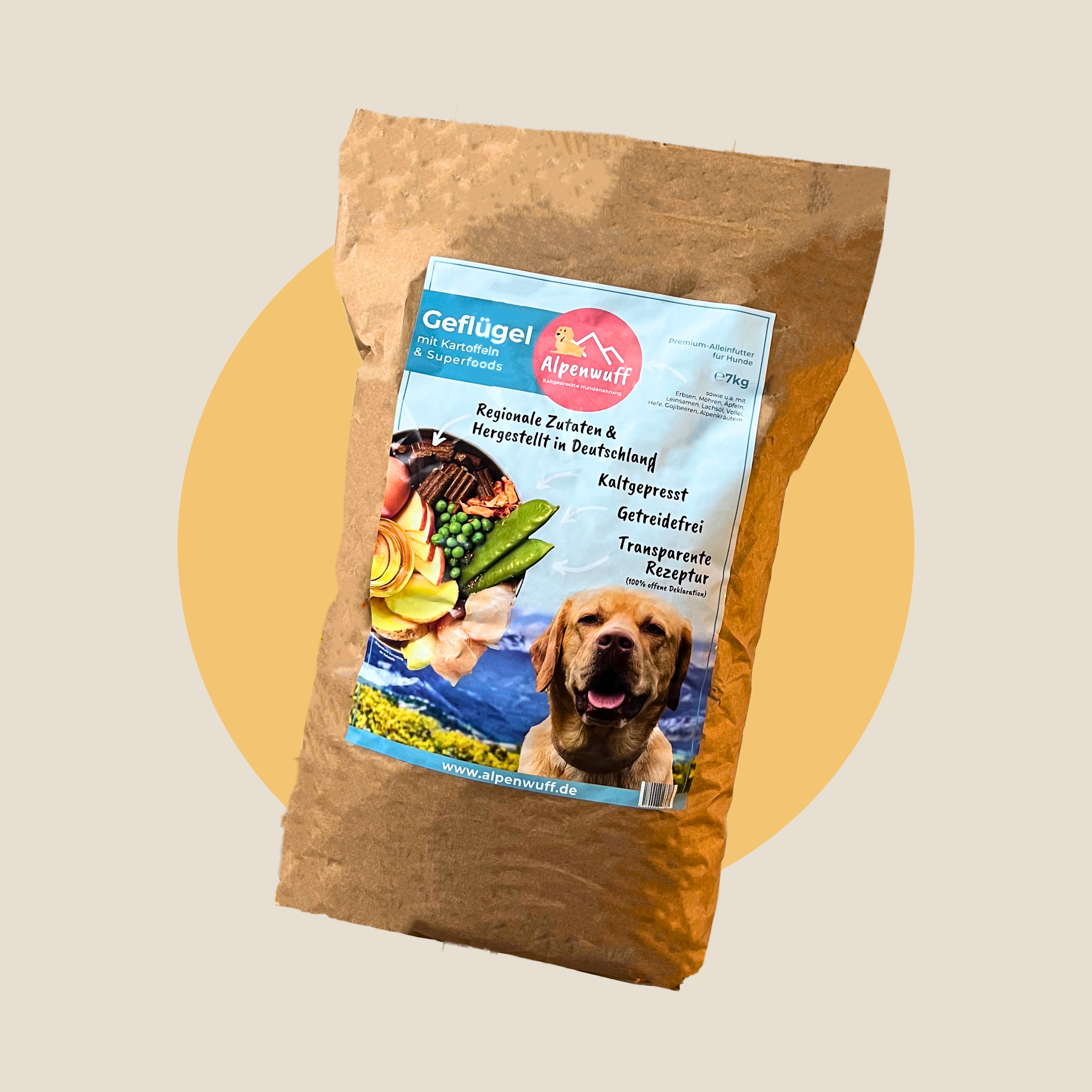
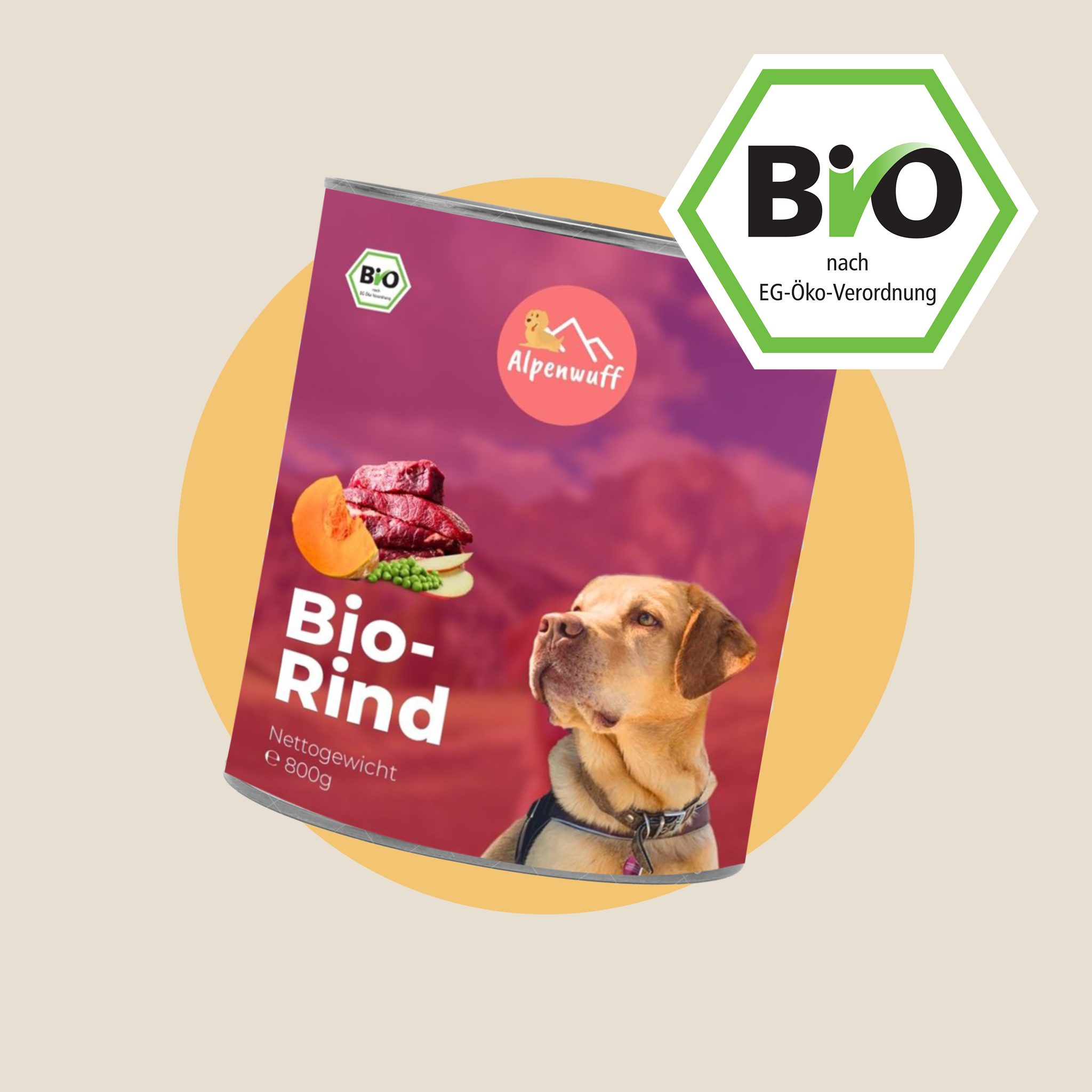
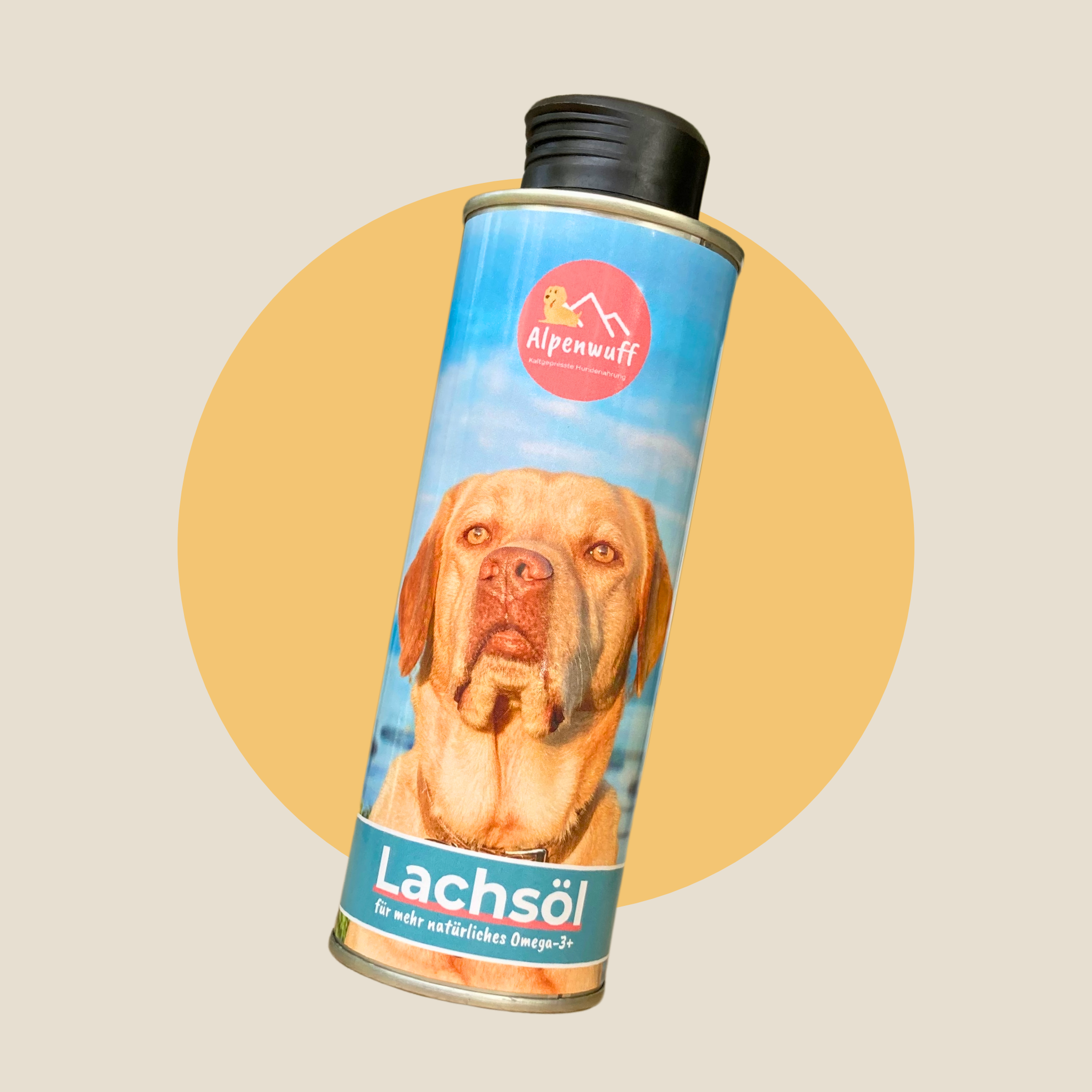


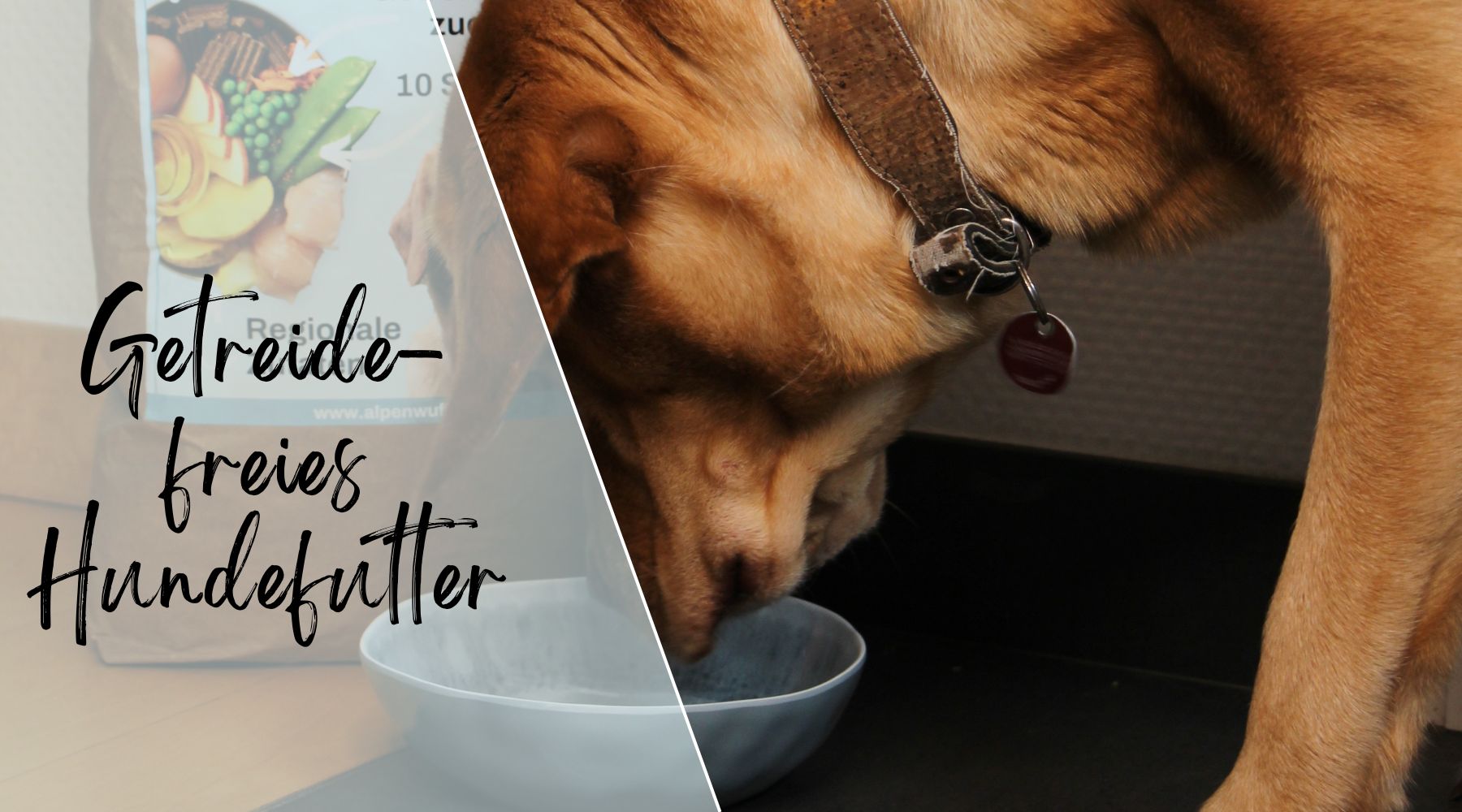

Leave a comment
All comments are moderated before being published.
This site is protected by hCaptcha and the hCaptcha Privacy Policy and Terms of Service apply.